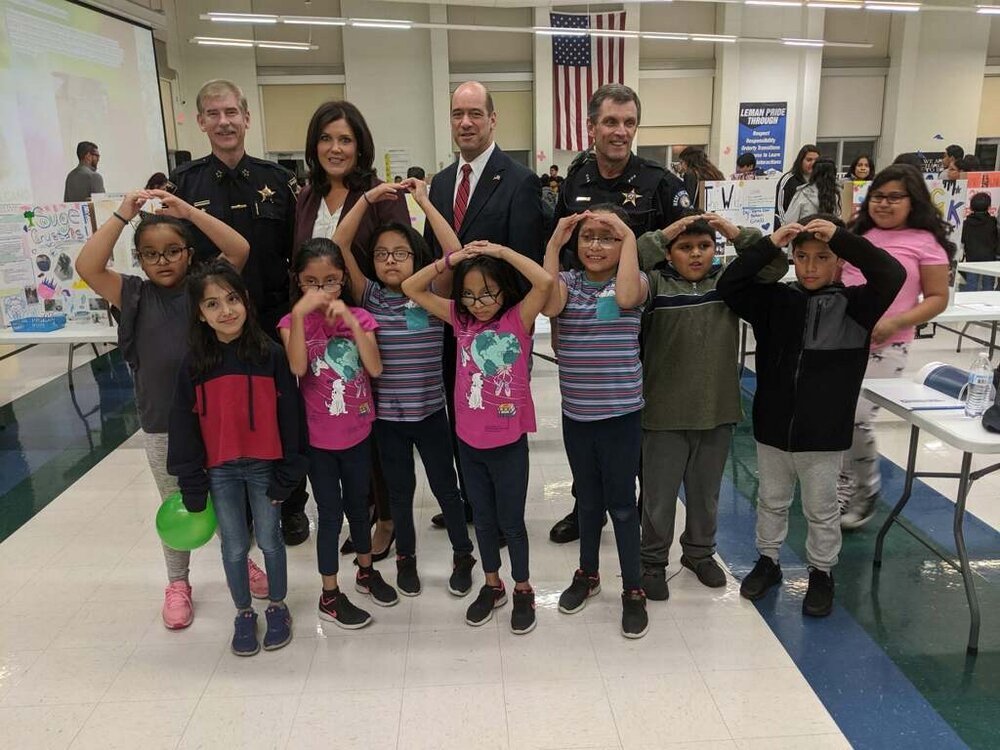Daily Herald: Spend Opioid Lawsuit Settlement On Programs To Help Kids, State's Attorneys Say
DuPage County State’s Attorney Bob Berlin and DuPage County Sheriff Jim Mendrick visit with children participating in a Fight Crime: Invest in Kids after school program.
As reported in the Daily Herald by Charles Keeshan and Susan Sarkauskas on September 9, 2022:
When Illinois starts spending the $760 million it is getting from the nationwide settlement of lawsuits against prescription opioid distributors and a manufacturer, some of that money should be spent helping the youngest victims of the opioid crisis -- babies and toddlers -- some top prosecutors around the state say.
"Tragically, children have been hit especially hard by the opioid epidemic," DuPage County State's Attorney Robert Berlin said Wednesday at a news conference held by Fight Crime: Invest in Kids, Illinois chapter.
"I want to stress how important it is a significant portion of these settlement funds are to be used to help young people who are in the crosshairs of this addiction. It is vital we help the youngest victims of the opiood crisis."
Berlin was joined by Winnebago County State's Attorney J. Hanley and Rock Island County State's Attorney Dora Villareal.
Berlin joined Fight Crime: Invest in Kids about 24 years ago. "I have realized it is important to be not just reactive to crime but be proactive to do everything we can to prevent crime in the first place," he said.
Fight Crime's Illinois Director Sean Noble said research shows early intervention in the lives of children born to, or living with, parents who have opioid abuse disorder can help prevent those kids from later having substance abuse issues and committing crimes.
Berlin said that on average nationwide, every 25 minutes a baby is born addicted to opioids. Neonatal abstinence syndrome rates grew 64% in Illinois from 2011 to 2017, according to Fight Crime.
NAS encompasses opioid and other drug exposure as a result of women taking drugs during pregnancy, and it can cause low birth weight, vision and hearing problems, jaundice and developmental delays, among other issues.
Fight Crime wants the state to spend more money on voluntary home-visiting programs run by the state, including Healthy Families, Maternal and Child Home Visiting (formerly called Parents Too Soon), and the Nurse-Family Partnership. The programs can help parents with substance abuse issues find treatment. The home visits reduce incidents of child abuse and neglect.
Fight Crime also wants more spending for early-intervention services, such as physical, occupational, speech and other therapies for babies and toddlers with developmental delays or disabilities.
Villareal said that a 2020 analysis showed that 15,000 Illinois families lacked home-visiting help.
Hanley has personal experience with the effects of opioids on children -- he and his wife adopted a baby with NAS. She has developmental delays, Hanley said.
"Young people born to addicted parents, like my adopted daughter, need support to ensure they can grow up to be healthy and successful," he said.
The Illinois Remediation Fund will receive 55% of the money the state receives, and a council is being established to advise how to spend it. The rest of the money is to be divided between the state and local governments for prevention and remediation efforts.
More than 320 law enforcement leaders belong to the Illinois chapter of Fight Crimes: Invest in Kids.
Original reporting can be found here.

